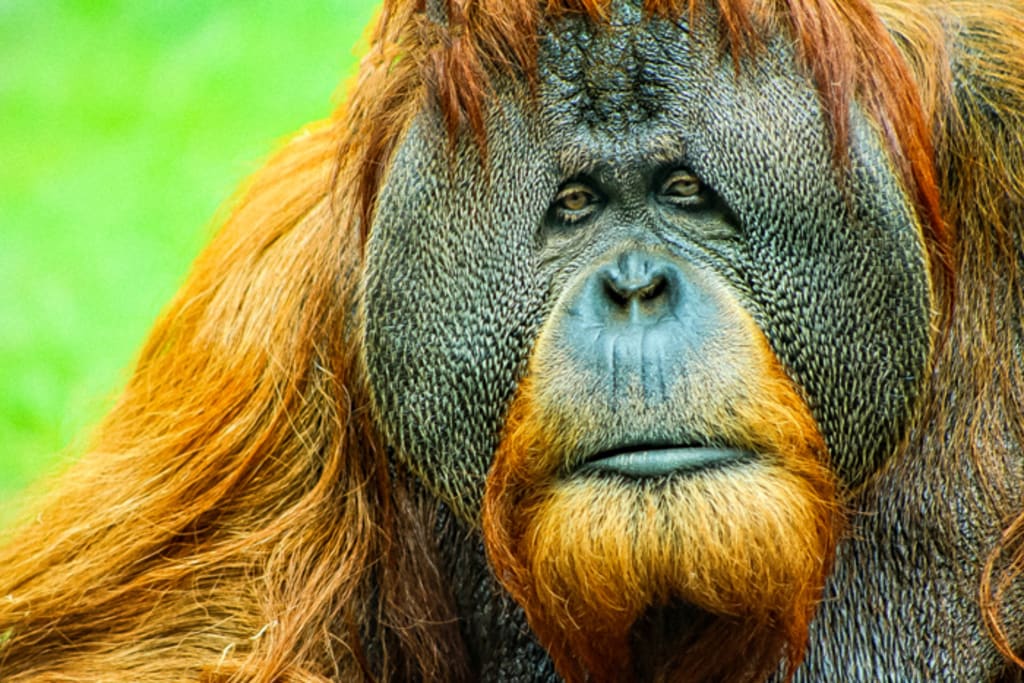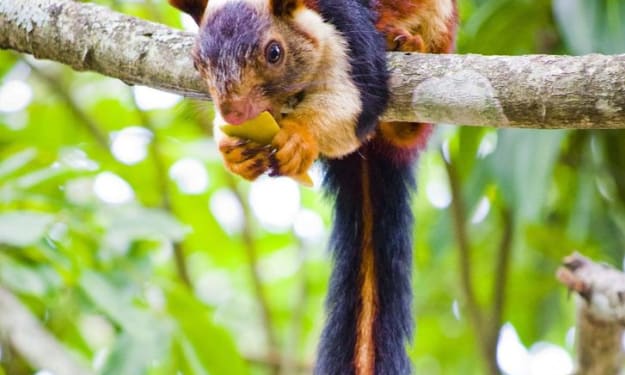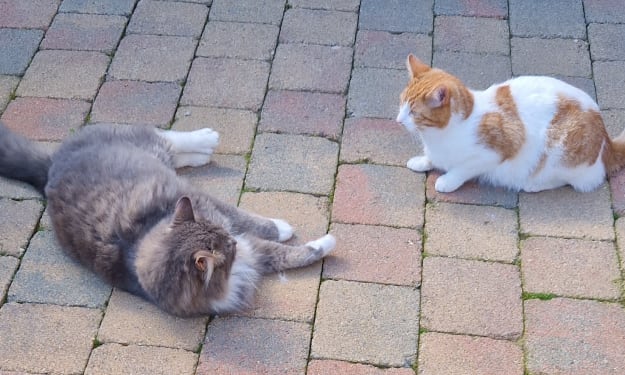Civil War in the Rainforest - Two Primate Groups in the Great Conflict
We share 97% DNA, but we don't seem to want to share our planet.

Every single piece of the ecosystem is important and precious. Every plant, insect, germ, animal and man. Do we really separate ourselves from animals as in "man and beast?" "Humans and animals?" That's a bit arrogant. Especially considering as children, we all knew the question, "Is it animal or mineral? Animate, or inanimate?" Hopefully, by the time we all got to biology, we learned that humans are "primates." And so are the great apes, and that includes our Orangutan cousins. We share 97% of our DNA.
There has been a lot written, produced, aired and published about palm oil and its devastating affect on the rainforest as well as orangutans and other species. If you're not aware of that major issue, please do some Googling and even searching on YouTube. You've been under a rock that may soon be moved for a palm oil plantation.
But what is NOT written about much is perhaps one of the biggest threats to our red cousins (particularly the Sumatran orangutan), and that is human-orangutan conflict.
Sumatran orangutans are found only on the Indonesian island of Sumatra. They can spend up to two weeks in the tree canopies without touching the ground. This is where they find their food and hydration, make nests to sleep, court and mate, and teach their young to do the same. Their young aren't just litters thrown out of the nest in a few weeks, either; the Orangutan raises their single-born children for seven or eight years at least.
Complete clearing and destruction of the rainforest in order to develop plantations for the palm oil and paper industries has led to deadly, violent forest fires. The fires not only destroy their homes, but kill many and run out others. Poachers kill mother orangutans, getting as little as $17 USD per orangutan. They capture their infant to sell on the black market. These are the stories we see commonly. But the ones who escape are the ones who are in direct conflict.
Losing their home, source of food, and family, they are in totally unfamiliar territory. This leaves them no choice but to raid farmer's crops outside of the rainforest and even invade human homes in the villages to find food and respite from their searching. They are then in direct conflict with humans, who shoot to kill.
There are approximately 7,300 of these beautiful primates surviving in the wild. Estimates are that if we don't do something immediately, they will be gone within 20 years. Extinct. Our own cousins. Not to mention all of the other species of plants, animals, insects and the environmental effect of changing the humidity and temperatures. So, what can you do from your part of the world?
There are people local to the area that do care very much. Many of these people work in orangutan rescue, rehabilitation and preservation. One of these individuals, who will be nameless due to security reasons, has devised a wonderful plan of acquiring a parcel of land that is a buffer zone between the plantations and the villages. As a group, they will plant appropriate trees and vegetation for orangutan habitat, and while it is growing to maturity, they will provide regular feedings for the animals. In time, it will become a safe haven, or a safe "oasis" for the Sumatran orangutans while bigger answers are being developed.
A grassroots organization, Orangutan Advocates for Safety in Sumatra (OASIS) has started a Go Fund Me to raise what seems a nominal amount of money to the Western world in order to obtain the parcel of land that has already been located. The work will be volunteer-based, although a more permanent organization will be formed in Sumatra to expand this program.
So what can you do from where you sit if you're not in Sumatra to literally block the bulldozers? I think this might be a fantastic answer!
Not even this Orangutan can block the bulldozer. OASIS helps by creating a safe haven, not destroying it.
About the Creator
Lisa LaRue-Baker
Lisa LaRue-Baker has been reading and writing since a young age. She has authored, edited and been a consultant on hundreds of articles, handouts and books. She is a tribal historian, musician, and registered natural health practitioner.






Comments
There are no comments for this story
Be the first to respond and start the conversation.